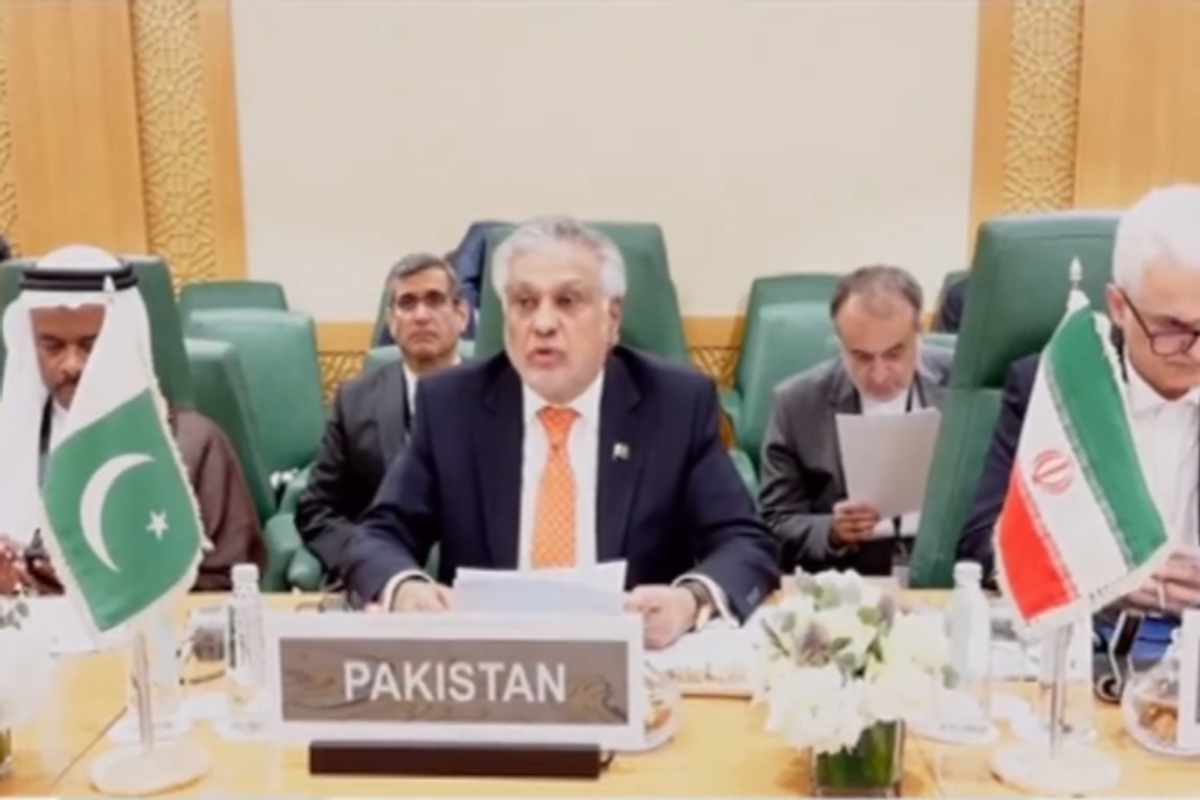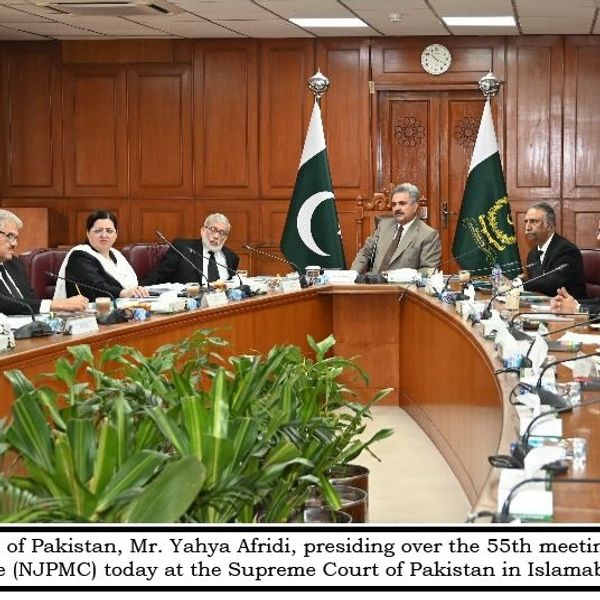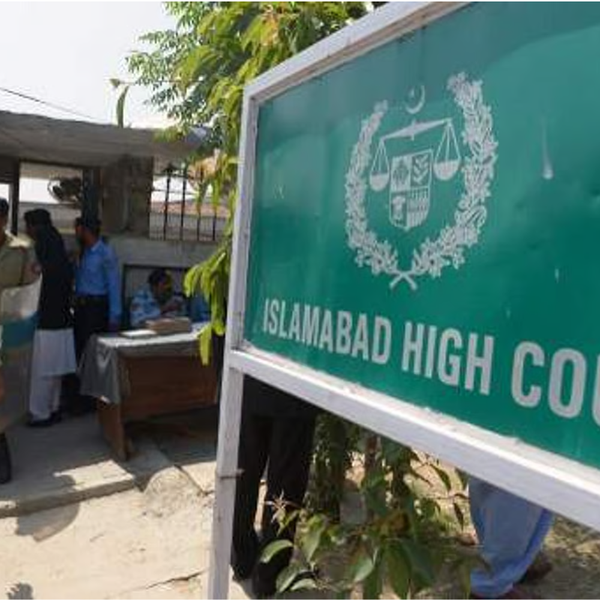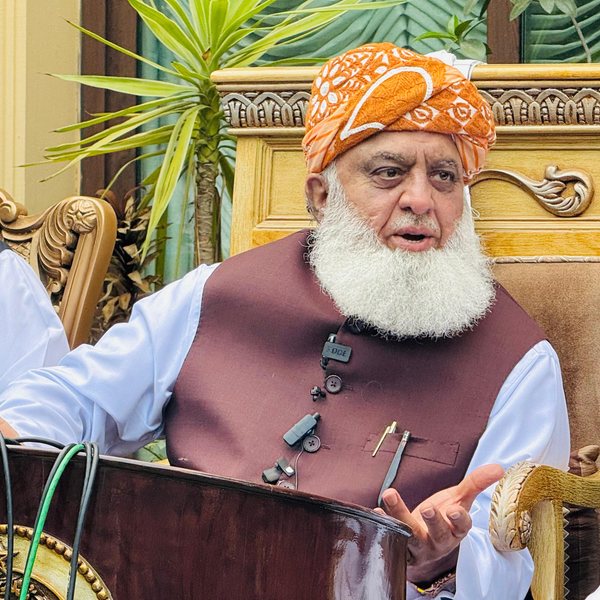Pakistan warns ‘Greater Israel’ plan threatens regional stability
Ishaq Dar urges OIC to act against the core causes of the Palestine conflict and Israeli occupation
News Desk
The News Desk provides timely and factual coverage of national and international events, with an emphasis on accuracy and clarity.

Pakistan’s Deputy PM and Foreign Minister Ishaq Dar addresses OIC-CFM session in Jeddah.
Screengrab
Pakistan has strongly criticized Israeli Prime Minister Benjamin Netanyahu’s recent statements hinting at the creation of a so-called “Greater Israel,” calling them a “direct threat to regional and international peace and security.”
The remarks follow far-right Israeli Minister Bezalel Smotrich’s announcement of plans to resume long-delayed settlement construction in the E1 area of the occupied West Bank, a move his office claimed would “bury” the prospect of a Palestinian state. The E1 plan, which has been frozen for decades amid international opposition, involves a sensitive 12-square-kilometer parcel of land east of Jerusalem.
Critics warn it would undermine hopes for a contiguous Palestinian state with East Jerusalem as its capital.
Speaking at an extraordinary session of the Organization of Islamic Cooperation’s Council of Foreign Ministers (OIC-CFM) in Jeddah, Pakistan’s Deputy Prime Minister and Foreign Minister Ishaq Dar said Islamabad fully endorses the joint statement issued by 31 Arab-Islamic countries, along with the Secretaries General of the OIC, the League of Arab States, and the Gulf Cooperation Council, condemning Israel’s announcement.
Dar described the statements as “highly escalatory and dangerous,” warning they exacerbate an already grave humanitarian crisis in the Occupied Palestinian Territory and threaten international efforts to achieve peace in the region. “We joined the statement issued by the Arab-Islamic Ministerial Committee in expressing strong condemnation and categorical rejection of the Israeli announcement,” he said, calling it “an unacceptable escalation and a brazen attempt to entrench illegal occupation.”
Highlighting the ongoing crisis in Gaza, Dar said over 60,000 Palestinians - mostly women and children - have been killed in Israel’s military assaults. “The systematic targeting of hospitals, schools, UN facilities, aid convoys, and refugee camps are not incidental; these are wanton acts of collective punishment,” he added.
He emphasized that Gaza has endured nearly two years of indiscriminate bombardment, a total blockade and deliberate deprivation, while violence and dispossession escalate in the West Bank and Jerusalem. “The so-called humanitarian system put in place by the occupying power is a cruel illusion. Civilians are being shot while trying to collect food. Hunger in Gaza has reached unprecedented levels,” he said.
Dar linked Israel’s recent announcements to a broader “annexationist and rogue mindset,” noting that the Israeli Cabinet’s plans to extend full military control over Gaza, alongside allusions to a “Greater Israel,” reflect a dangerous escalation in both rhetoric and action.
Pakistan’s crisis resolution plan
Pakistan expressed appreciation to all states and stakeholders advancing peace in Gaza, stressing the importance of sustained international support for stability and justice.
Dar outlined seven measures Pakistan proposes to address the crisis:
- Immediate, permanent, and unconditional ceasefire across Gaza and the Occupied Palestinian Territory, with full implementation of UN Security Council Resolution 2735.
- Unfettered, sustained, and secure humanitarian access to civilians, including protection of aid workers and UN personnel.
- Renewed international support for UNRWA, vital for millions of Palestinians, with proactive OIC involvement.
- An end to forced displacement, illegal settlement expansion, and annexation of Palestinian land, particularly in the West Bank and East Jerusalem.
- Implementation of the Arab- and OIC-led reconstruction plan for Gaza to enable post-conflict recovery and sustainable development.
- Revival of a genuine, time-bound political process to achieve a just, comprehensive two-state solution under international law.
- Accountability for war crimes and crimes against humanity, ensuring Israel cannot act with impunity under international law or ICJ measures.
Dar stressed that the UN Security Council bears primary responsibility for ensuring global peace and must act to impose consequences on Israel for violations, including the potential deployment of an international protection force in Gaza.
He urged the OIC to act decisively, addressing the root causes of the conflict and ending the illegal Israeli occupation. “It is time for credible action to reaffirm our shared commitment to a just and lasting peace in the Middle East,” he concluded.










Comments
See what people are discussing